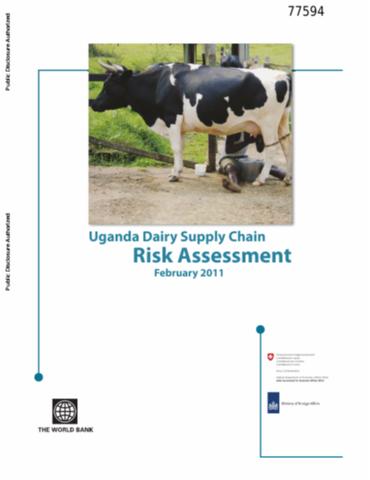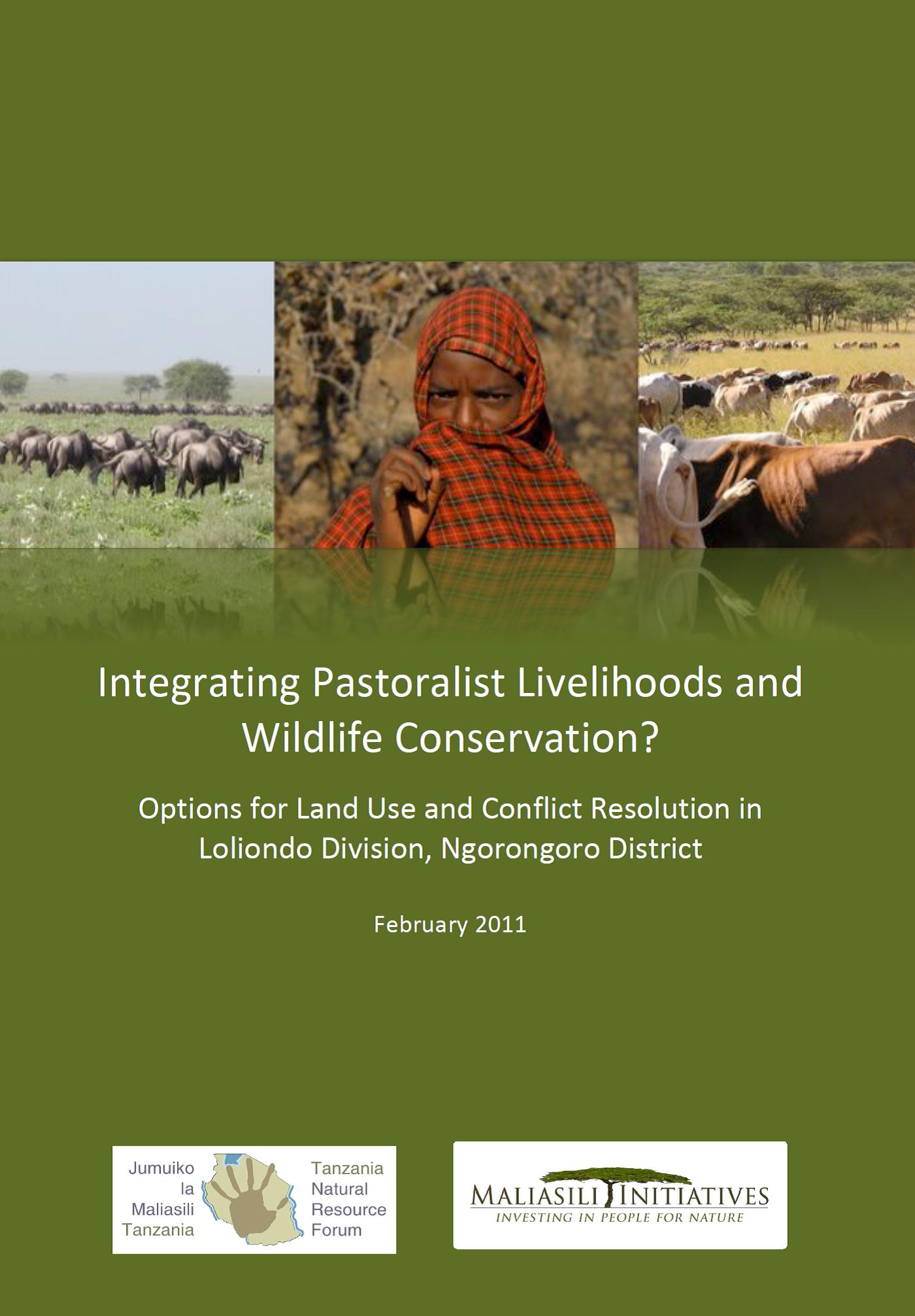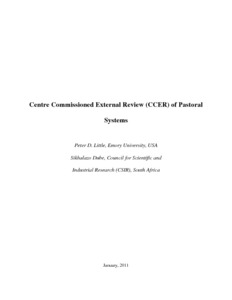Pastoral issues must be part of ILRI’s research agenda into the future
Ian Scoones, Science Adviser to ILRI reflects on the recent conference on the future of pastoralism and the work of ILRI in this area. He argues that pastoralism ‘must be part of ILRI’s research agenda into the future.” He identifies two promising areas: First, to engage in technical research on production issues in pastoral areas and pastoral systems - to sustain the enormous economic potential of such areas. Second, to support the broader area of innovation.
Pastoral systems and cultures in transition
Jan de Leeuw from ILRI reflects on the recent conference in Addis Ababa on the future of pastoralism in Africa. He concludes that pastoral systems in Africa are very much in transition. He notes that external influences on pastoralism (education, religion, land rights etc) are much more visible than in the past; the "full mobility" pastoralism that we knew is changing.
Pastoralists in Kenya and Sudan discover new markets for camels
Speaking in the margins of a recent conference on the future of pastoralism in Africa, Hussein Makmoud from Pwani University College in Kenya talks abut the growing trade in camels in northern Kenya and southern Sudan and how these new markets are contributing to pastoralist livelihoods in the regions. The Addis Ababa conference (21-23 March 2011) was organized by the Future Agricultures Consortium with Tufts University.
Protecting pastoralists against mortality losses due to severe forage scarcity
Repeated droughts and hazards are the real challenge for Pastoralist communities
Jan de Leeuw from ILRI reflects on the impacts of droughts and hazards on pastoral communities in Africa. He argues that pastoralists are often well-adapted to short term hazards and droughts. A single-season drought weakens livestock and communities. When rains fail repeatedly however, the problems start, and the impacts can be long-lasting. He was talking in the margins of the recent conference in Addis Ababa on the future of pastoralism in Africa. The Addis Ababa conference (21-23 March 2011) was organized by the Future Agricultures Consortium with Tufts University.
There are many futures for pastoralism in Africa
Adrian Cullis from FAO Ethiopia reflects on the recent conference in Addis Ababa on the future of pastoralism in Africa. The event's fundamental take home message is that "there is a future for pastoralism in Africa." However, it looks like there will be different futures and different forms of pastoralism - with winners and losers. He also outlines the work FAO does in this area, and comments on some issues like gender and productivity issues (of rangelands, of livestock) that received insufficient attention in the meeting.
Uganda Dairy Supply Chain Risk Assessment
Cattle are one of the main instruments for economic (e.g., milk, meat, and cattle sale) and social (e.g., marriage, death, dispute settlement, and gift giving) exchange in Uganda. They serve as the main source of livelihood for a large majority of rural Ugandans, especially in the cattle corridor. Recent statistics demonstrate that the livestock sector contributes 13.1 percent of the agricultural gross domestic product (GDP) and 5 percent of the national GDP.
Integrating Pastoralist Livelihoods and Wildlife Conservation?
This report provides an overview of the conflict in Loliondo, reviewing historical information, current land uses and tenure arrangements.
Examples of the diversity of rights holders and rights to land and natural resources in West Africa
Looks at nomadic pastoralists’ rights to resources, rights to land and resources in Winye country in Burkina Faso, and land rights in forested areas and plantation economies. These suggest that we should always think of land as both a private and communal resource, consider the nature of different individual and collective actors, and see them as possible rights holders who may be recognized or ignored.
Climate change and the emergence of helter-skelter livelihoods among the pastoralists of Samburu east district, Kenya
Climate change impacts livelihoods adversely in dry-lands of Northern Kenya in terms of longer and harsher droughts, shorter and intense precipitation and floods. Climate change interlocks with peoples life-worlds differently for different reasons. Understanding the foregoing can inform and make policy more relevant. What are the Samburu peoples discernment of climate change and how have they confronted it? The paper examines the Samburu perspectives of climate change and the resulting coping, adaptation mechanisms and practice, and their prospects.
Centre Commissioned External Review (CCER) of pastoral systems
This report reviews key issues in pastoral systems research in tropical areas of sub-Saharan Africa and South Asia with the goal of identifying a ten-year research strategy for pastoral systems research for ILRI.







